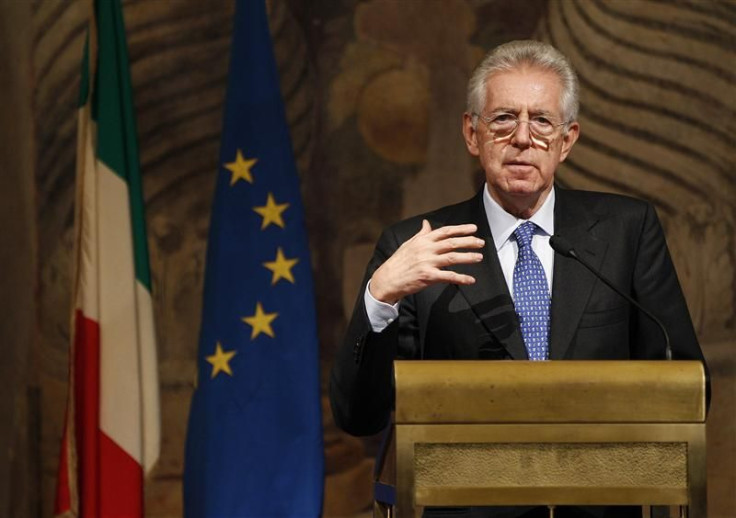Monti Under Severe Pressure as Italian Bond Yields Jump Above 7%

Yields on Italian 10-year sovereign bonds jumped above the seven percent level in Tuesday trading -- suggesting the market does not believe that Rome can repay its huge debts or effectively tackle its massive debt problems, thereby placing more pressures on incoming Prime Minister Mario Monti.
At one point, the yield reached 7.039 percent – similar to the ‘danger’ levels at which financial bailouts were required by Greece, Ireland and Portugal.
Last week, the Italian yield actually was much higher – soaring to a record 7.48 percent, just prior to the resignation of former Prime Minister Silvio Berlusconi.
A technocrat and former European Union commissioner, Monti said he would “act with urgency” to resolve Italy’s deep financial crisis.
Monti’s appointment followed the passage of an austerity bill by both chambers of Italy’s parliament. That legislation envisions almost 60 billion euros of savings and a balanced budget by 2014.
In an effort to quickly form a unity government, Monti met on Tuesday with Luigi Bersani, the chief of the centre-left Democratic Party (PD). He also plans to talk with officials of the centre-right People of Freedom Party (PDL) of Berlusconi.
Bersani told the press that he encouraged Professor Monti to go ahead with determination. We did not set a deadline to the government.”
However, PDL members are reportedly divided on Monti – who needs consensus support for a confidence vote scheduled for later this week.
Fabrizio Cicchitto, a prominent PDL official, told Italian media that his group will take a constructive approach as long as there is debate on the policy proposals and on the government's structure. We won't agree to anything in the dark.”
Even worse, according to Italian reports, Umberto Bossi, the head of the right-wing Northern League Party (formerly a key member of Berlusconi’s coalition) said he will not meet with Monti.
On Monday, following negotiations with smaller political parties, Monti stated: The political powers are conscious that we must have a period of calm to allow us to move forward with a sense of responsibility and cohesion, according to La Repubblica newspaper.
The situation in Italy would appear to be grave.
Keith Wade, the chief economist at Schroders in London, wrote in a note: “With no solution to Italy’s problems in sight, the country can continue to raise money from the markets at high interest rates whilst the [European Central Bank] can continue to buy Italian debt and try to cap yields. However, neither is sustainable. This would mean we are headed for an almighty crunch. Either we continue along the current path [where Italy is likely to run out of funding options], or Germany has to give way on [quantitative easing].”
© Copyright IBTimes 2025. All rights reserved.





















